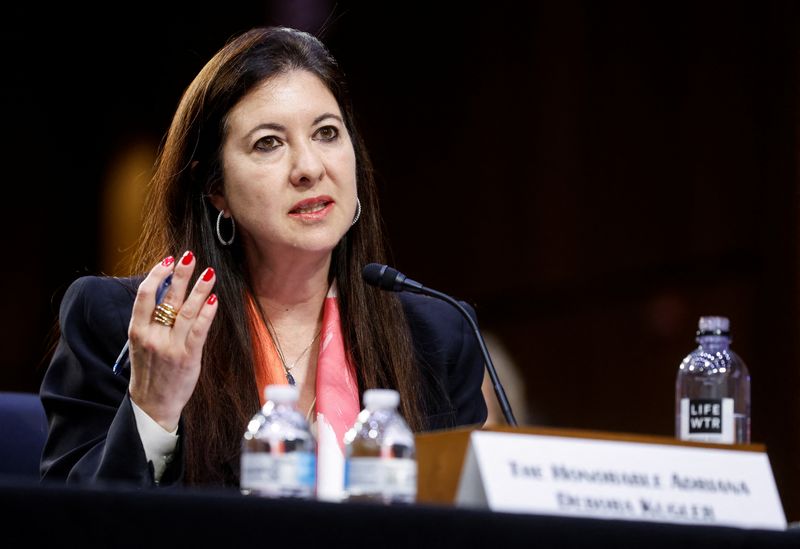(Reuters) -Federal Reserve Governor Adriana Kugler said on Tuesday she strongly supported the U.S. central bank's recent interest rate cut and will support further reductions if inflation continues to ease as she expects.
The Fed cut interest rates by a half a percentage point last month and investors see another smaller move in November as the labour market is cooling and inflation pressures continue to ease.
"While I believe the focus should remain on continuing to bring inflation to 2%, I support shifting attention to the maximum-employment side of the FOMC's dual mandate as well," Kugler said, referring to the U.S. rate-setting Federal Open Market Committee, of which she is a member.
She argued that the labour market was already starting show signs of cooling and the Fed was keen to avoid sharper weakness.
"We don't want a drastic slowdown in the labour market," Kugler told a European Central Bank conference.
"We don't want the labour market to weaken so much that it's going to cause undue pain, when at the same time we have been seeing a serious reduction in terms of inflation and inflation is moving back to target."
But Kugler also noted that last week's job report, which showed a bigger than expected jump in job creation and a fall in the unemployment rate was a welcome development, since it showed resilience in the labour market.
She also argued that the Fed will not base its decisions on a single indicator and would instead look at trends, which are clearly showing that cooling has started to take hold in the labour market.
"The labour market remains resilient, but I support a balanced approach to the FOMC's dual mandate so we can continue making progress on inflation while avoiding an undesirable slowdown in employment growth and economic expansion."
A stronger U.S. economy allowed the FOMC to be "patient about the timing" in reducing its policy rate and focus on bringing inflation down, Kugler said.
"If progress on inflation continues as I expect, I will support additional cuts in the federal funds rate to move toward a more neutral policy stance over time," Kugler said.
Kugler said she is closely monitoring the economic effects of Hurricane Helene and geopolitical events in the Middle East.

"If downside risks to employment escalate, it may be appropriate to move policy more quickly to a neutral stance," Kugler said.
"Alternatively, if incoming data do not provide confidence that inflation is moving sustainably toward 2%, it may be appropriate to slow normalization in the policy rate."